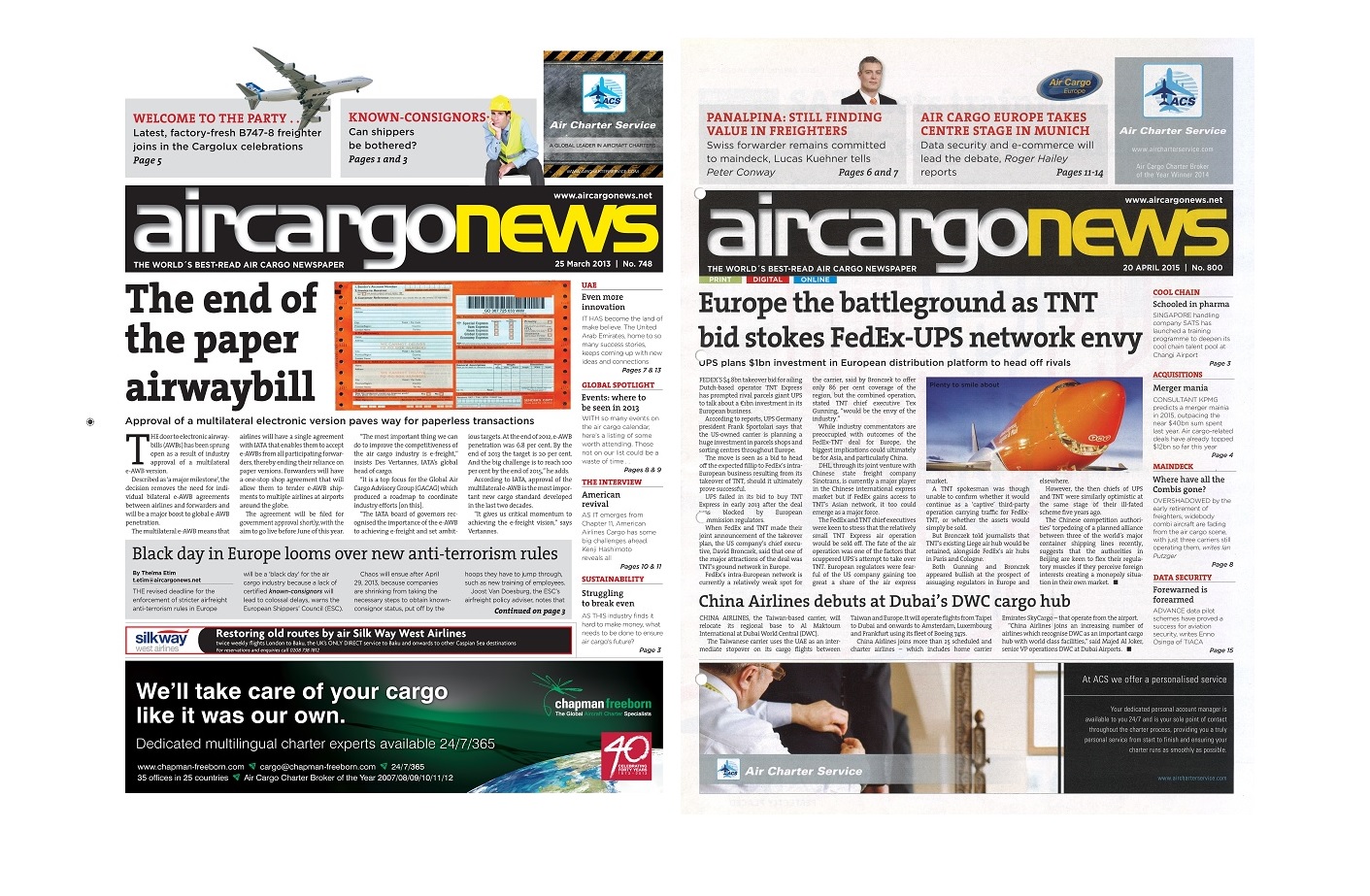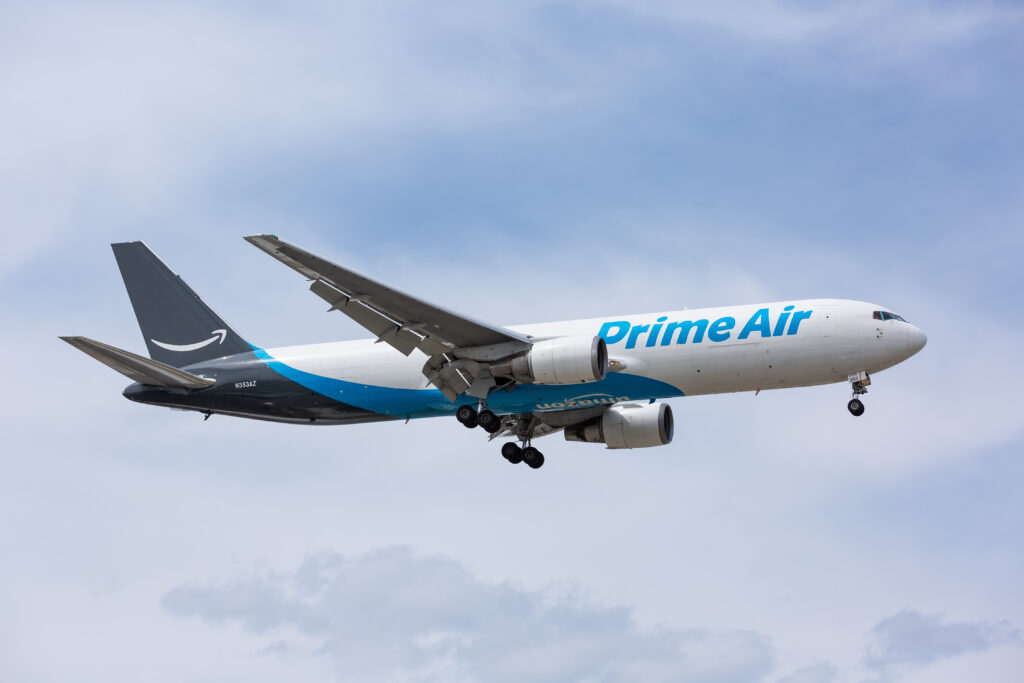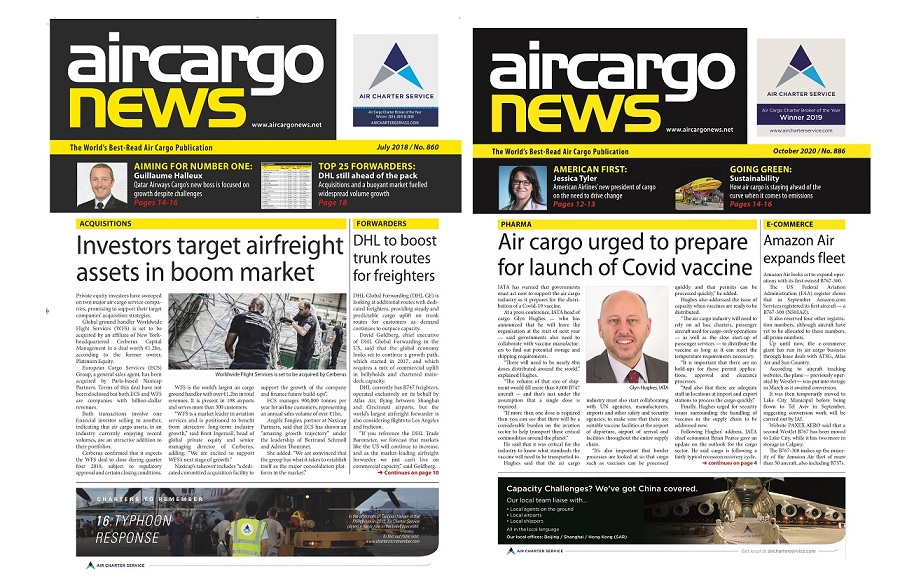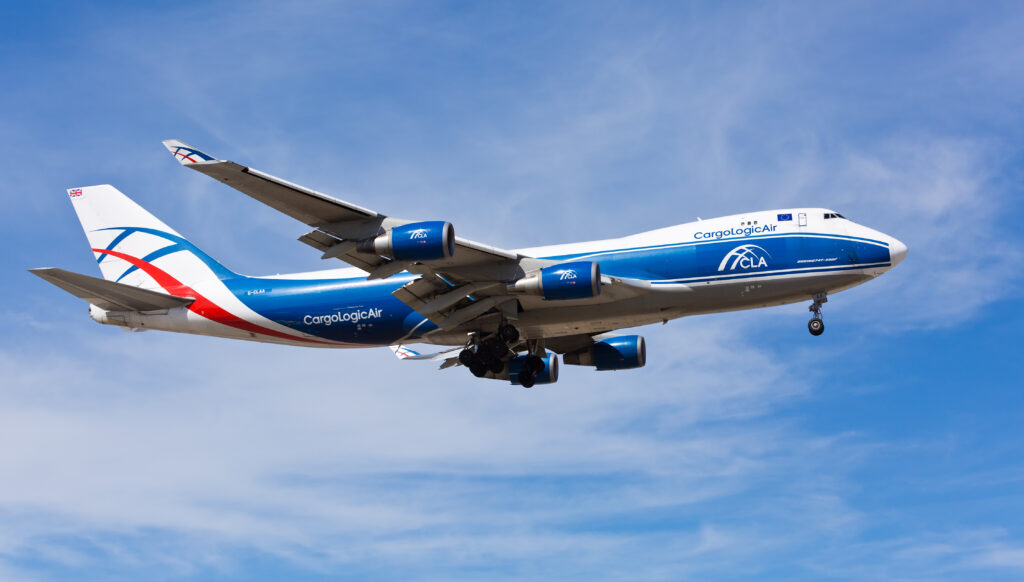2013-2022 M&A mania and the rise of express carriers
02 / 08 / 2023

Air cargo in 2013-2022 was characterised by high‑value investments and acquisitions, but it also faced huge challenges.
The period 2013-2022 played host to a mature air cargo market. There was a flurry of merger and acquisition activity, alongside a stream of new airlines hungry for a slice of a demand-driven market, according to Air Cargo News’ (ACN) headlines.
Market adversity was driven by the Covid-19 pandemic, the US-China trade war, and actual war in the form of the Russia-Ukraine conflict.
2013
As companies continued to explore digitalisation, going paperless to drive efficiency started to become a tangible target – with an added bonus for sustainability, although this was still a fledgling concept in the airfreight world.
In March, the industry approved a multilateral electronic air waybill (e-AWB), which enabled airlines to have a single agreement with IATA meaning they could accept e-AWBs from participating forwarders, “thereby ending their reliance on paper versions”.
Elsewhere, Greek freighter airline Aerospace One launched in June – though it only lasted until 2014, and the following month Swissport acquired Servisair. Boeing also confirmed plans for a freighter version of the 787-900 platform – although the variant is yet to materialise 10 years later.
In a nod to the 1990s, the question of whether airlines were encroaching on the role of freight forwarders was raised once more in December, when ACN reported that shippers were keen to do business directly with airlines.
But there was no repeat of KLM’s alleged feud with freight forwarders and, as one airline pointed out, forwarders continued to play a valuable and separate role to airlines.
2014
2014 saw US cargo airline Western Global Airlines launch in August with MD-11 freighters. At the end of the year VietJET AirCargo launched in Vietnam, and BidAir Cargo acquired Imperial Air Cargo.
Miami-based MD-11F operator Centurion Air Cargo did not share the same good fortune. In October it looked to be on its last legs: it faced numerous debts and terminated all its US-Europe flights. But the carrier would struggle on until it finally collapsed in 2018.
Meanwhile, in May, IAG Cargo committed to belly operations when it made the decision to cancel British Airways World Cargo’s agreement with Global Supply Systems for the wet lease of three Boeing 747-8 freighters.
In a contrasting win for freighter capacity, Airbus said in December that it would develop five new Beluga aircraft based on the A330, as an update to the existing five Belugas that were based on the A300-600R.
There was also a key conversion development in December when Egyptair Cargo became the launch customer for German Elbe Flugzeugwerke’s (EFW) A330P2F conversions.
2015
FedEx took an express leap in April, when its $4.8bn bid to take over rival Dutch firm TNT was revealed. The takeover prompted rival express carrier UPS, which had failed to buy TNT in 2013, to gear up for investment in its European business. “Europe the battleground as TNT bid stokes FedEx-UPS network envy”, read ACN’s front page.
In October, Danish freight forwarder DSV continued its growth trajectory with the
acquisition of California-based freight forwarder UTi to become “the world’s eighth‑largest airfreight forwarder, up from its
existing position of 17th”, ACN wrote.
Other notable acquisitions included automotive logistics specialist GEFCO Group’s September takeover of Dutch freight forwarder IJS Global from private equity firm Nimbus; charter company Air Partner’s purchase of Cabot Aviation in May; and ground handler Worldwide Flight Services’ (WFS) planned majority stake in Fraport Cargo Services in
July.
Russia’s Volga-Dnepr Group showed it was serious about growth in June by signing a memorandum of understanding with Boeing for 20 additional 747-8 freighters, with a list price value of $7.4bn.
And Boeing reaped further rewards in July when US transport giant FedEx splashed the cash again with a commitment to purchase 50additional 767-300F aircraft to continue its express-centred growth.
The year also saw DHL Global Forwarding write off €345m as it abandoned its botched New Forwarding Environment (NFE) transformation project in favour of a different IT system.
Rumours also began to emerge that e-commerce giant Amazon had entered the airfreight world, setting up a network with a lessor out of Wilmington Park, Ohio.
Later reports suggested that Amazon could be adding European operations in partnership with ASL Airlines, starting with peak-season flights using a single Boeing 737F.
2016
In March, ATSG confirmed reports of a partnership with Amazon on a fleet of 20 767 freighters. The fleet was later expanded through partnerships with Atlas Air and Cargojet, amongst others.
US-based Atlas Air Worldwide Holdings also struck a deal to acquire Southern Air for$110m. Confirmed in April, the takeover granted Atlas entry into the Boeing 777 and 737 aircraft market.
February saw the launch of the 737-800 Boeing Converted Freighter (BCF), which the airframer intended for the transport of express cargo on short-haul, domestic routes. The model was an instant hit, with ACN reporting Boeing had confirmed 30 orders and 25 commitments from seven customers.
Plus, the much-anticipated new UK cargo airline CargoLogicAir was awarded an Air Operator Certificate (AOC) by the UK Civil Aviation Authority in February.
Volga Dnepr Airlines and Antonov Airlines also confirmed their AN 124-100 freighter joint venture, Ruslan International, would finish at the end of December after a 10-year partnership.

Copyright: Carlos Yudica/ Shutterstock
2017
Amazon’s first-ever branded freighter, a767-300F operated by US-based lessor Atlas Air, flew for the first time in June. “Amazon One” was just one of 40 aircraft that Amazon had agreed to lease through its air cargo partners Atlas and ATSG.
Elsewhere in June, Panalpina acquired Kenyan forwarder Air Connection and Danish freight forwarding and logistics company Carelog Freight Service and its subsidiaries.
And in October, Japanese shipping and transport company NYK set in motion a deal to wholly own its freight forwarding subsidiary, Yusen Logistics, by acquiring the remaining 41% from minority shareholders.
Additionally, the industry was reminded ofone of the downsides of digitalisation, when in June the Petya cyber-attack hit businesses worldwide. One of the victims in the logistics world was FedEx, which said subsidiary TNT
Express was “significantly affected”.
On the subject of disruption, one year after the UK’s vote to leave the European Union, stakeholders were unanimously keen to minimise the anticipated disruption of multimodal operations.
ACN reported in June that the airport industry had called for a single European aviation market, while UK shippers pushed fornegotiations to ensure the continued flow
of goods.
2018
In April, Boeing delivered the first 737-800BCF to launch customer GE Capital Aviation Services (GECAS) and operator WestAtlantic.
Then in July deals valued at $11.8bn, Volga-Dnepr Group ordered five 747-8Fs, and the UK-registered CargoLogicHolding, under which CargoLogicAir operated, signed a letter of intent in to acquire 29 777Fs.
Following this up in September, Volga‑Dnepr Group partner carrier CargoLogic Germany said it was preparing tolaunch as an express operator and had already sourced three 737 freighters.
One of the biggest acquisitions of the year was Cerberus Capital Management’s €1.2bn takeover of WFS in June.
But DSV proved the true path of M&A doesn’t always run smooth when it confirmed in October that it had made a rejected takeover bid for CEVA Logistics.
The following month, CEVA Logistics brought French shipping giant CMA CGM’s freight management business, CMA CGM Log, for $105m.
Elsewhere, in November, logistics giant Kuehne+Nagel (K+N) acquired Quick International Courier, a time-critical specialist in aviation, pharma and healthcare shipments.
2019
March saw the completion of DSV’s $5.5bn acquisition of supply chain solutions provider Panalpina. The takeover of Panalpina would result in the “creation of the second-largest airfreight provider in the world”, ACN wrote.
And CEVA Logistics was under the spotlight again in April, when CMA CGM successfully acquired the fellow France-based business.
Meanwhile, in October, lessor GECAS, which was taken over by fellow lessor AerCap in 2021, was revealed as the launch customer for Israel Aerospace Industries’ (IAI) 777F conversion programme, the first after-market cargo modification launched for the 777 family.
It was also a boom year for German logistics specialist Rhenus Group, which acquired Italian logistics company Cesped, freight forwarding and logistics specialist World Net Logistics in South Africa, Canadian logistics provider Rodair, and Miami-based Freight Logistics Group.
While the Brexit withdrawal agreement treaty was finally signed by the UK and the EU in January 2020, forwarders were in 2019 told toprepare for no-deal Brexit.
ACN reported in February that DHL Express had hired 300 customs agents, and freight forwarder Panalplina had set up a
Brexit task force. The UK government also put measures in place to ensure the continuity of flights.
On a global scale, there was a decline in demand to contend with, with one ACN headline in October reading: “Air cargo in longest slump since global financial crisis”. IATA said the US-China trade war, which had been ongoing since 2018, had a clear negative impact on the industry.

2020
But the market was soon set to pick up. 2020 brought the unexpected crisis that was the Covid-19 pandemic. Belly capacity was severely curtailed, with greatly reduced flight numbers at the beginning of the year.
Airlines improvised by utilising unused passenger planes for cargo, with terms such as “preighters” and “cargo-in-the-cabin” entering air cargo terminology for the first time, and freighter operators ramped up business.
In March, ACN reported that airfreight rates continued to rise as capacity became scarce – but vital – as the industry worked to transport medical supplies. Capacity eventually started to return later in the year, while rates were later buoyed by the rollout of
the first vaccines.
But the industry also suffered with supply chain stoppages, which resulted in redundancies and recruitment freezes.
In October, the first A321 freighter converted by EFW began commercial operations with Qantas for Australia Post, following a September redelivery to its owner, lessor Vallair.
And Amazon confirmed in November that it had begun Amazon Air European airfreight operations from its new hub at Leipzig/Halle Airport, plus leased two branded 737-800 aircraft from GECAS for operation by ASL Airlines.
2021
Continued ocean shipping congestion from 2020 and reduced belly capacity aided sustained high demand and capacity shortages
in air cargo in 2021, a winning conundrum for charter brokers, reported ACN
in February.
And in July, one of ACN’s headlines looked at how high ocean freight rates were pushing forwarders and shippers to turn to airfreight. 2021 also saw shipping lines moving into airfreight.
CMA CGM Air Cargo launched in March, offering flights between Liege and Chicago operated by Air Belgium using an A330-200F.
In November, Danish container shipping giant Maersk revealed it would acquire Hamburg-based freight forwarder Senator International, whose own-controlled capacity aligned with Maersk’s airfreight strategy, reported ACN.
The purchase, completed in June the following year, had an enterprise value of about $644m.
Elsewhere, Kuehne+Nagel (K+N) agreed toacquire Apex International Corporation in
February. The transaction, with an estimated value of $1.5bn-$2bn, was set to “make the company the largest forwarder in
the airfreight market”, wrote ACN.
DSV also “became a top three global forwarder” said ACN, when in August it acquired Agility’s Global Integrated Logistics (GIL) business in a deal worth about $4.1bn.
2022
Pandemic-led operations changed in 2022 when the European Union Aviation Safety Agency (EASA) declared in April that cargo-in-the-cabin flights, which had been operating since 2020, would not be allowed beyond July 31.
Meanwhile, pandemic measures continued to restrict China and Hong Kong’s air cargo operations, with carriers such as Cathy Pacific reflecting the strain with reduced volumes and capacity.
The Russia-Ukraine war also shaped operations, from sanctions placed on Russian fleets, Ukrainian aircraft unable to fly, diverted flight paths and reduced airfreight capacity.
CargoLogic Germany was declared insolvent in May after sanctions – because ofits links to Russian individuals – affected its ability to do business. CargoLogicAir suffered the same fate, entering administration in November.

Copyright: Carlos Yudica/ Shutterstock
In February, the industry learnt that the unique Antonov AN-225 “Mriya” aircraft had been destroyed at Antonov’s Gostomel base near Kyiv. Antonov Airlines later transferred its operations base to Leipzig, Germany.
April saw the launch of the Billund Airport-hubbed Maersk Air Cargo, which began operations at the end of October, with Amerijet-operated scheduled flights between the US and South Korea.
And CMA CGM Air Cargo, which had switched its hub from Liège to Paris CDG, received its air carrier certificate from the French Civil Aviation Authority in June, announcing plans for a fleet of 12 Boeing and Airbus freighters by 2026.
At the end of 2022, MSC Air Cargo began operations with Atlas Air flying a 777-200F, and adopted Liège as its European hub.
Other notable takeovers included Atlas Air Worldwide’s roughly $5.2bn acquisition by an investor group in August; Agility subsidiary National Aviation Services’ (NAS) agreement to buy John Menzies in February; and ULD firm Envirotainer’s €2.8bn sale by private equity firm Cinven and co-investor Novo Holdings to private equity firm EQT and investment company Mubadala.
The year ended with German rail group Deutsche Bahn confirming speculation that it would examine the potential sale of up to 100% of its shares in its forwarder DB Schenker in order to focus on its core rail business.














